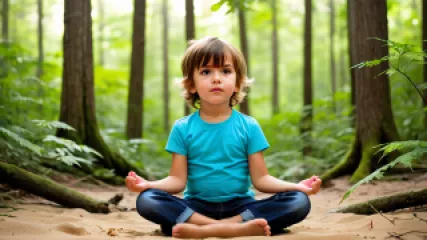Proven Strategies to Help Kids Manage Anger
Proven Strategies to Help Kids Manage Anger
Anger is a natural human emotion that everyone experiences, including children. However, when anger becomes overwhelming or is expressed in unhealthy ways, it can have a significant impact on a child's well-being, relationships, and overall development. As parents, educators, and caregivers, it is our responsibility to help children learn effective anger management strategies to navigate this complex emotion.
In this comprehensive research summary, we will explore proven techniques and insights to assist children in developing the skills necessary to understand, express, and regulate their anger in a healthy manner. By equipping children with the right tools and support, we can empower them to navigate the challenges of anger and foster their emotional resilience.
Understanding Anger in Children
Anger is a multifaceted emotion that serves an important purpose in a child's development. It can act as a signal to identify and address underlying issues, such as frustration, fear, or a sense of injustice. Anger can also motivate children to stand up for themselves, establish boundaries, and assert their needs.
However, when anger is not properly managed, it can lead to disruptive behaviors, strained relationships, and difficulties in various aspects of a child's life. Children may express their anger through physical aggression, verbal outbursts, or withdrawal, which can negatively impact their social and academic performance.
It is crucial to recognize that anger in children is a normal and healthy emotion, and the goal should not be to eliminate it entirely, but rather to help them develop the skills to express and manage it effectively.
Strategies for Helping Children Manage Anger
Effective anger management for children involves a multifaceted approach that addresses the emotional, cognitive, and behavioral aspects of this complex emotion. Here are some proven strategies that can help children develop the necessary skills:
1. Emotional Awareness and Expression
Helping children identify and label their emotions is the first step towards effective anger management. Encourage them to recognize the physical sensations and internal cues associated with anger, such as a racing heart, clenched fists, or a tightening in the chest.
Provide children with a safe and supportive environment to express their anger in healthy ways, such as through art, music, or guided journaling. Teach them techniques like deep breathing, visualization, and progressive muscle relaxation to help them calm down when they feel angry.
2. Cognitive Strategies
Anger often stems from the way children interpret and appraise situations. Teach children to challenge negative thought patterns and reframe their perspective. For example, help them recognize the difference between "I failed the test because I'm stupid" and "I failed the test, but I can learn from this experience and do better next time."
Encourage children to engage in problem-solving by breaking down complex issues into manageable steps. This can help them develop a sense of control and agency in dealing with anger-provoking situations.
3. Behavioral Regulation
Develop and practice anger management strategies that involve physical activity, such as going for a walk, engaging in sports, or participating in mindful movement exercises like yoga or tai chi. These activities can help children burn off excess energy and release built-up tension in a constructive manner.
Teach children socially appropriate ways to express their anger, such as using "I" statements to communicate their feelings or engaging in role-playing to practice assertive communication. Encourage them to take breaks and use self-soothing techniques when they feel their anger escalating.
4. Modeling and Reinforcement
As children's primary role models, parents and caregivers play a crucial role in shaping their anger management skills. Demonstrate and model healthy anger expression and resolution strategies in your own life, and provide positive reinforcement when you observe children using these techniques.
Collaborate with teachers, counselors, and other important figures in a child's life to ensure a consistent and supportive approach to anger management across different settings.
The Importance of a Holistic Approach
Effective anger management for children requires a holistic approach that addresses the various factors contributing to their emotional well-being. This includes addressing underlying issues, such as traumatic experiences, family dynamics, or mental health concerns, that may be influencing a child's ability to regulate their anger.
By incorporating evidence-based practices, fostering a supportive environment, and involving all the key stakeholders in a child's life, we can empower children to develop the necessary skills and resilience to navigate the challenges of anger and thrive in their personal, social, and academic endeavors.
Conclusion
Helping children manage their anger is a critical aspect of their overall development and well-being. By understanding the nature of anger, implementing proven strategies, and providing a holistic support system, we can equip children with the tools they need to express their emotions in a healthy and constructive manner.
As we continue to prioritize the emotional well-being of our children, the insights and strategies presented in this research summary can serve as a valuable resource for parents, educators, and caregivers alike. By working together to foster children's emotional intelligence and resilience, we can create a more compassionate and understanding world for the next generation.






